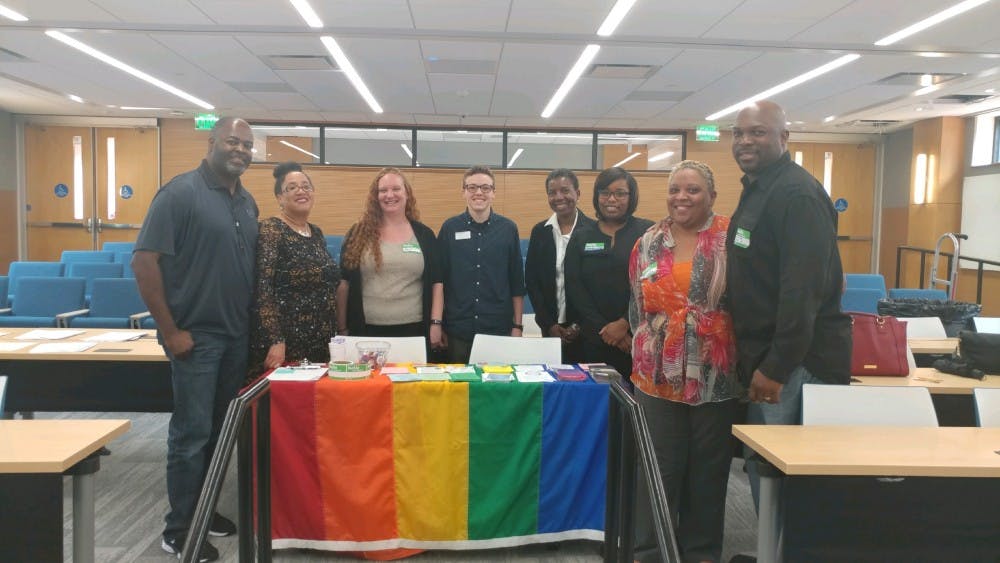CORRECTION: An earlier version of this article incorrectly stated that Safe Zone trainings are part of the national Safe Zone Project. The trainings at UNC were developed independently. The article has been updated with the correction information about the trainings. The Daily Tar Heel apologizes for this error.
Each Safe Zone training begins with introductions using pronouns. This is the first step in the training’s goal to teach allyship strategies to all participants.
Safe Zone trainings are programs held on campus by the UNC LGBTQ Center to learn about gender identity and sexuality. They are a part of the national Safe Zone Project, an online project with resources for LGBTQ+ awareness.=
“Often times, when people hear the word ally, they think straight people or cisgender people that support LGBTQ individuals,” said April Callis, assistant director of the LGBTQ Center. “We move beyond that definition to talk about the fact that everybody can be an ally to everybody else.”
The first Safe Zone training at UNC was offered in 1998 by the undergraduate LGBTQ+ organization that eventually evolved into the Sexuality and Gender Alliance after they noticed a knowledge gap in the community. Starting in 2003, the University's new LGBTQ Center hosted the trainings.
“The LGBTQ Center opened in 2003 as part of the Office of the Dean of Students and one of the first things that the center did was start doing these Safe Zone trainings,” Callis said. “And then the LGBTQ Center became its own stand-alone center in 2006 and once again, one of our flagship things from then until now is the Safe Zone Program.”
Each training is four hours long and includes different components such as group activities and one-on-one conversations.
“It’s four hours, and we usually take three hours and 59 minutes because it’s a lot of content,” Jhon Cimmino, academic affairs coordinator for the Department of Physics and Astronomy, said. “It’s a lot of sharing. People are getting to know each other. We don’t want to just have it as one big group, we have those small group conversations so that different learning styles are engaged.”
Cimmino serves as a facilitator of Safe Zone trainings. He attended his first Safe Zone training in September 2017 and trained to be a facilitator in October that same year.



